China joins global trend: China is becoming one of several countries stopping fossil-fuel powered vehicles on its roads. Xin Guobin, the country’s vice minister of industry and information 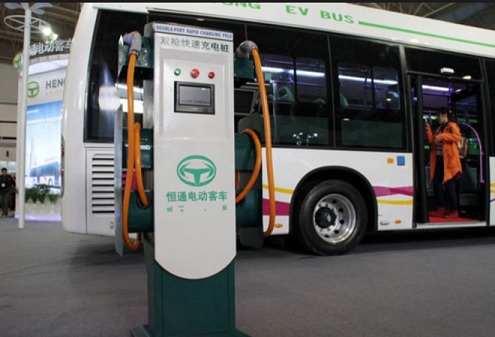 technology, announced in a speech Saturday that regulators are working on a timeline for phasing out the sales and production of the gasoline- and diesel-powered vehicles. Norway, France, and the UK, are already going in that direction. Almost 80 percent of the global auto market is heading toward an eventual phase-out of petroleum-powered cars through government incentives and mandates. It’s a big job – with about 695,000 of 84 million new vehicles sold last year being electric; and with about a billon vehicles out on roads across the world now.
technology, announced in a speech Saturday that regulators are working on a timeline for phasing out the sales and production of the gasoline- and diesel-powered vehicles. Norway, France, and the UK, are already going in that direction. Almost 80 percent of the global auto market is heading toward an eventual phase-out of petroleum-powered cars through government incentives and mandates. It’s a big job – with about 695,000 of 84 million new vehicles sold last year being electric; and with about a billon vehicles out on roads across the world now.
Ford Transit Custom PHEV tested in London: Fleets took a look at the Ford Transit Custom plug-in hybrid van in the Cenex Low Carbon Vehicle 2017 event in Millbrook, UK. Ford will be testing 20 of these vans with fleets over a 12-month trials starting later this year. It will go 31 miles on battery only and 310 miles on electric and its 1.0-liter EcoBoost gasoline engine. It’s supported by the Transport for London agency with the Metropolitan Police and several city-based companies participating in the trial. “Seeing the PHEV Transits on the road is an exciting milestone, and we look forward to teaming up with our London partners and customers to explore how these vans can reduce emissions and operator costs in the city,” said Mark Harvey, Director, urban electrified van program, Ford of Europe.
Daimler cutting costs to make EVs profitable: Daimler wants to cut production costs 4 billion euros ($4.8 billion) by 2025, and will channel funds into developing and manufacturing electric cars. CEO Dieter Zetsche and Frank Lindenberg, VP of finance and controlling Mercedes-Benz 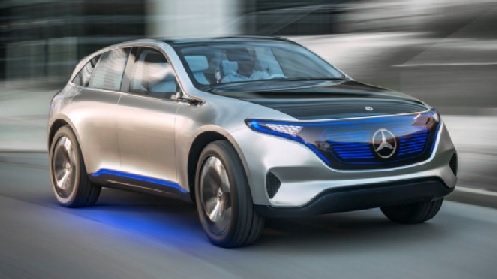 Cars, only expect to see half the profit margins now for EV compared to conventional internal combustion engine vehicles. That could break even, and EVs more price competitive, by 2025. Seeing battery prices come down will be a big part of it. More specifics were given on its electric fleet introductions – by 2022, there will be an electric version of every Mercedes model sold. It will be led by the new EQ electric brand, which Mercedes-Benz is overseeing. The Smart brand will stop selling vehicles with any internal combustion engines in 2020.
Cars, only expect to see half the profit margins now for EV compared to conventional internal combustion engine vehicles. That could break even, and EVs more price competitive, by 2025. Seeing battery prices come down will be a big part of it. More specifics were given on its electric fleet introductions – by 2022, there will be an electric version of every Mercedes model sold. It will be led by the new EQ electric brand, which Mercedes-Benz is overseeing. The Smart brand will stop selling vehicles with any internal combustion engines in 2020.

 hybrid that’s expected to be competitive in the luxury utility segment. Photos went out unexpectedly ahead of time. Production will launch in 2018. BMW executives have said the X7 will go on sale in the U.S. market in early 2019. There’s also an i-Series model, that could be the long-anticipated i5 sedan, that will be revealed next week. It will be one of 12 all-electric vehicles launched by 2025, bringing the total to 25 electrified vehicles offered, BMW’s CEO said.
hybrid that’s expected to be competitive in the luxury utility segment. Photos went out unexpectedly ahead of time. Production will launch in 2018. BMW executives have said the X7 will go on sale in the U.S. market in early 2019. There’s also an i-Series model, that could be the long-anticipated i5 sedan, that will be revealed next week. It will be one of 12 all-electric vehicles launched by 2025, bringing the total to 25 electrified vehicles offered, BMW’s CEO said. kWh battery and an 80-kilowatt electric motor. The Japanese automaker promised to release a faster, more powerful version with longer range in 2019. The new Leaf is not meeting the 200-mile electric vehicle standard that’s becoming the norm, but it is going about 40 miles further than the current Leaf and costs a bit less; and it can deliver 147 horsepower, 38% more than the previous version. It’s got a new sharp-edged aerodynamic look and a few tech features. That includes the ProPILOT advanced driver assistance system, ProPILOT Park, and the e-Pedal that allows for accelerating, decelerating and stopping the car by using the accelerator pedal alone.
kWh battery and an 80-kilowatt electric motor. The Japanese automaker promised to release a faster, more powerful version with longer range in 2019. The new Leaf is not meeting the 200-mile electric vehicle standard that’s becoming the norm, but it is going about 40 miles further than the current Leaf and costs a bit less; and it can deliver 147 horsepower, 38% more than the previous version. It’s got a new sharp-edged aerodynamic look and a few tech features. That includes the ProPILOT advanced driver assistance system, ProPILOT Park, and the e-Pedal that allows for accelerating, decelerating and stopping the car by using the accelerator pedal alone.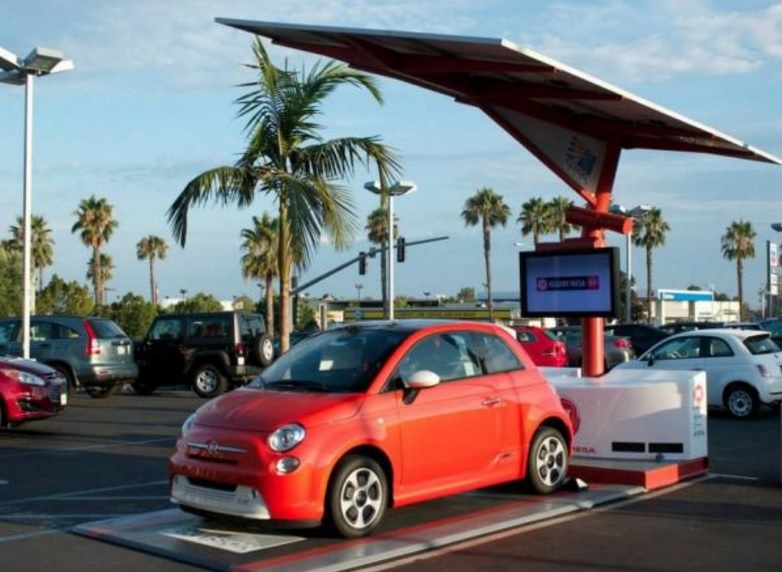 conduct studies on the best ways to write and implement EV rebate legislation. The report won’t be due until Sept. 1, 2019. Language was also removed from AB 1184 that offered a formula for providing higher rebate amounts. The full legislature will consider the amended bill. The $3 billion originally in AB 1184 would have offered rebates until 2030. It would have been six times higher than the nearly $500 million spent on EV rebates so far in the state.
conduct studies on the best ways to write and implement EV rebate legislation. The report won’t be due until Sept. 1, 2019. Language was also removed from AB 1184 that offered a formula for providing higher rebate amounts. The full legislature will consider the amended bill. The $3 billion originally in AB 1184 would have offered rebates until 2030. It would have been six times higher than the nearly $500 million spent on EV rebates so far in the state.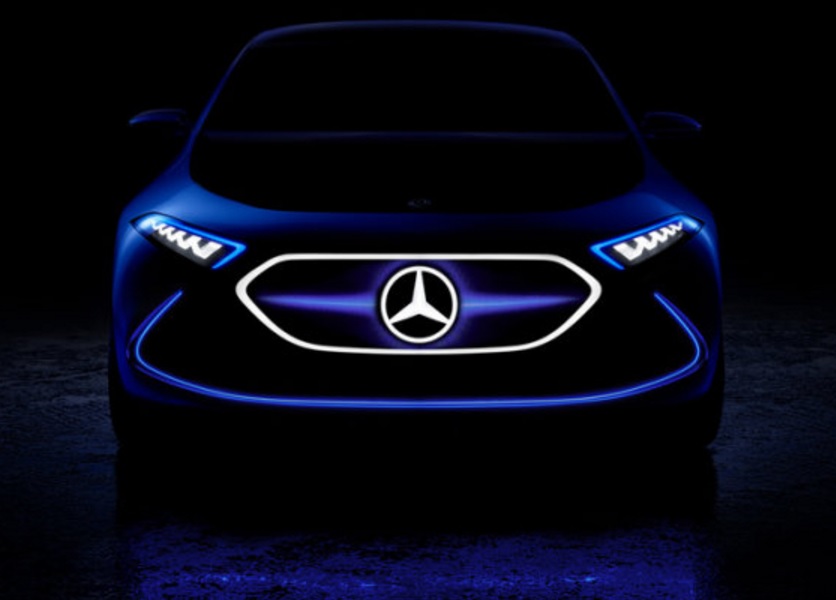 ike the Generation EQ Concept show last year in Paris; it could be an electric sedan but most likely will be a small crossover or hatchback. It’s not going to roll out until 2020 or later as a production vehicle, and Mercedes-Benz is expected to reveal a few other electric EQ concept vehicles by that time. The company will also be showing a small autonomous concept car in Frankfurt called the Smart Vision EQ.
ike the Generation EQ Concept show last year in Paris; it could be an electric sedan but most likely will be a small crossover or hatchback. It’s not going to roll out until 2020 or later as a production vehicle, and Mercedes-Benz is expected to reveal a few other electric EQ concept vehicles by that time. The company will also be showing a small autonomous concept car in Frankfurt called the Smart Vision EQ.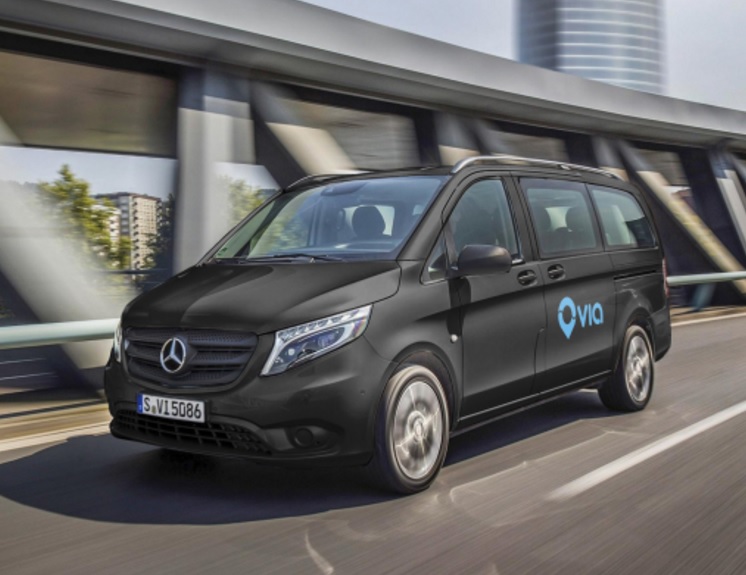 ridesharing venue through
ridesharing venue through 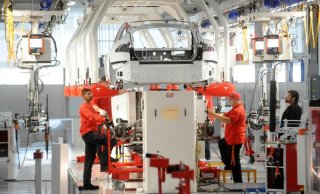 Workers union with charges of unfair labor practices. The Fremont factory has been picking up production volume as the Tesla Model 3 is being delivered to first buyers, and with production volumes speeding up later this year. Tesla sees it as a campaign by UAW to unionize Tesla workers, which has failed to gain enough support so far to win a union election. Employees have voiced their own concerns about working conditions in the factory. A study released by Worksafe in May found injuries at the Fremont plant to be much higher than the industry average in recent years.
Workers union with charges of unfair labor practices. The Fremont factory has been picking up production volume as the Tesla Model 3 is being delivered to first buyers, and with production volumes speeding up later this year. Tesla sees it as a campaign by UAW to unionize Tesla workers, which has failed to gain enough support so far to win a union election. Employees have voiced their own concerns about working conditions in the factory. A study released by Worksafe in May found injuries at the Fremont plant to be much higher than the industry average in recent years.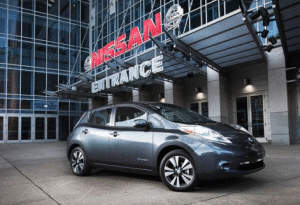 well lately, with an 8.3% increase over July. At 9,685 units sold in the U.S. so far in 2017, it’s up 22.3% over that same period last year. There’s been a lot of interest in the Leaf lately with the all-new version being launched in September. It will be longer range than the current Leaf and will feature a new set of tech features, including ePedal. Consumers are looking for more affordable electric cars and have a lot of interest in the new Leaf, along with the Tesla Model 3 and Chevy Bolt.
well lately, with an 8.3% increase over July. At 9,685 units sold in the U.S. so far in 2017, it’s up 22.3% over that same period last year. There’s been a lot of interest in the Leaf lately with the all-new version being launched in September. It will be longer range than the current Leaf and will feature a new set of tech features, including ePedal. Consumers are looking for more affordable electric cars and have a lot of interest in the new Leaf, along with the Tesla Model 3 and Chevy Bolt.